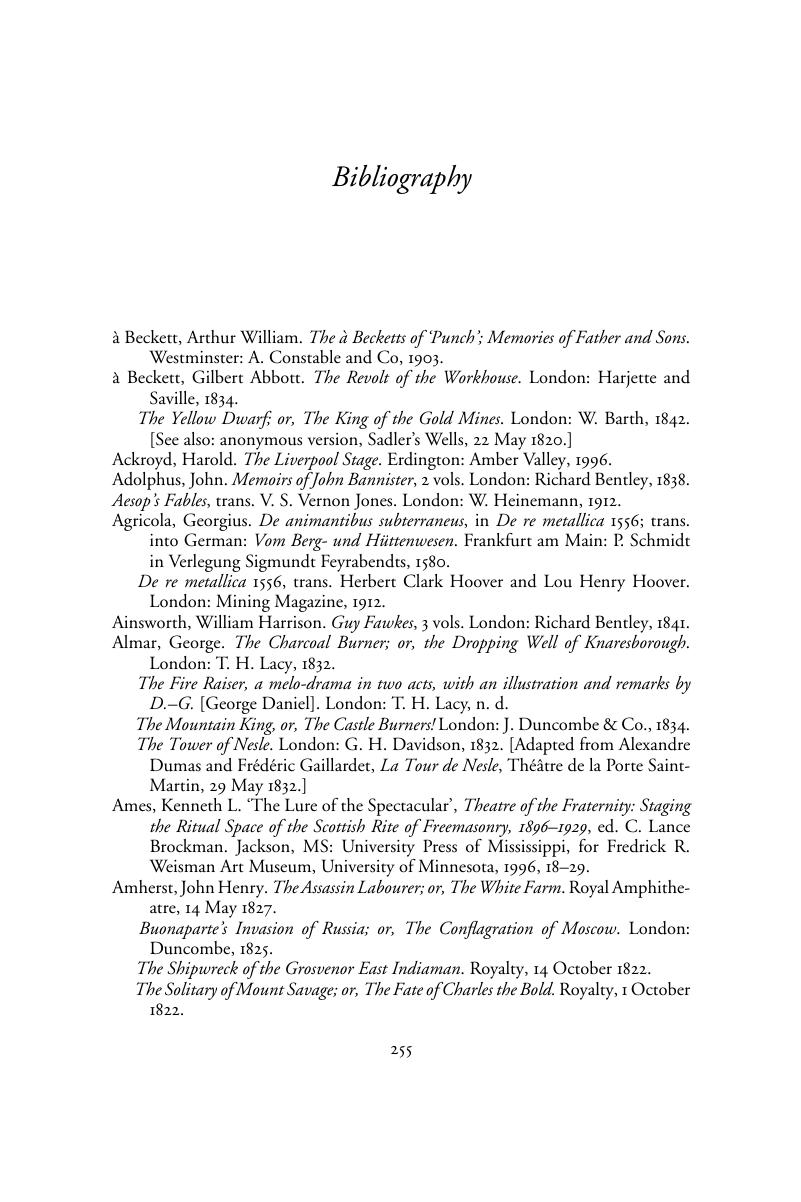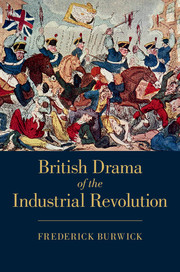Book contents
- British Drama of the Industrial Revolution
- British Drama of the Industrial Revolution
- Copyright page
- Contents
- Illustrations
- Book part
- Introduction
- Chapter 1 Playing the provinces
- Chapter 2 Patronage: merchants, tradesmen
- Chapter 3 Combination Acts and friendly societies
- Chapter 4 Weavers
- Chapter 5 Mines and mills
- Chapter 6 King Ludd, Captain Swing, Captain Rock
- Chapter 7 Vagrants, beggars
- Chapter 8 Smugglers, poachers, wreckers, coiners
- Chapter 9 Explosions, conflagrations, and other happy endings
- Bibliography
- Index
- References
Bibliography
Published online by Cambridge University Press: 05 August 2015
- British Drama of the Industrial Revolution
- British Drama of the Industrial Revolution
- Copyright page
- Contents
- Illustrations
- Book part
- Introduction
- Chapter 1 Playing the provinces
- Chapter 2 Patronage: merchants, tradesmen
- Chapter 3 Combination Acts and friendly societies
- Chapter 4 Weavers
- Chapter 5 Mines and mills
- Chapter 6 King Ludd, Captain Swing, Captain Rock
- Chapter 7 Vagrants, beggars
- Chapter 8 Smugglers, poachers, wreckers, coiners
- Chapter 9 Explosions, conflagrations, and other happy endings
- Bibliography
- Index
- References
Summary

- Type
- Chapter
- Information
- British Drama of the Industrial Revolution , pp. 255 - 287Publisher: Cambridge University PressPrint publication year: 2015

